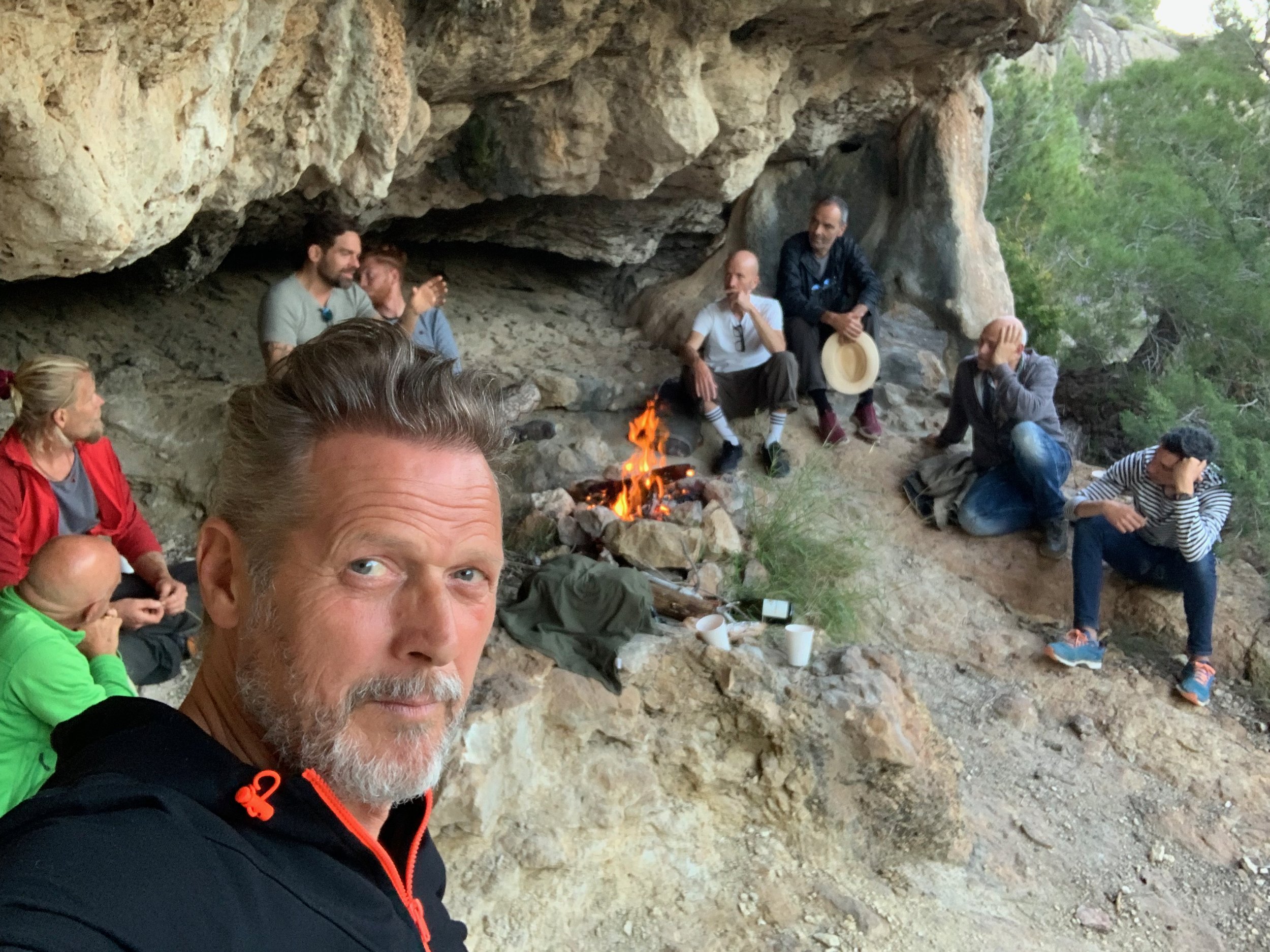Why I started Unconditional Men?
(part 1)
After working a couple of years on my personal growth and inner transformation and moving to Ibiza in 2019, when talking to men, I often felt a feeling of superficiality, disconnection, of something lost, of not being present, and sometimes a deep feeling of discomfort, a lack of bonding, of not truly being who you are, …
I guess it had to do with the fact that after spending a lifetime listening to the many success stories of everyone, in life, in business, talking about achievements, sports, or anything men talk about in general, no longer satisfied me in my interaction with them.
So, I started experimenting with men’s gatherings, organising regular circles with friends, at my home or at friends’ places. These gatherings and meetings confirmed something I felt for a while inside: men need a deeper connection with other men, to share their experiences, feelings and be(come) vulnerable with each other.
During the covid isolations, I explored the possibility of men meeting online in a different context than just online business meetings. At first, I thought it would be more difficult to create real vulnerability on screen but the opposite revealed surprisingly true. Once someone shows his vulnerability on screen, the other men hold space for each other to be vulnerable with each other.
Unconditional Men in Ibiza, spring 2022
Meanwhile, I had started researching the topic of Men’s Work in literature and online articles. While reading Steve Biddulph’s The New Manhood: Love, Freedom, Spirit and the New Masculinity, something stroke me very deeply.
He mentions, that during his talks, on average, he notices 90 per cent of the men are in a poor relationship with their fathers. He divides the 90% in three distinctive groups:
The first group barely speaks to their father, rarely makes the time to see him, and doesn’t like it when they do. They are basically estranged from their father. The anger and hurt in these men are palpable.
The second category sees their fathers at birthdays, holidays and family gatherings. They get along. “But there is something wrong, a prickliness; the relationship seems to consist of the mutual exchange of disagreements, even if it’s just about which brand of lawnmower is best. There’s a connection, but it’s a ‘cactus’; there is not much relaxation flowing between these men. They come away from their encounters bleeding from a thousand small cuts. Their women sigh in exasperation, not sure who to blame.”
The third group are usually the well-behaved men. “They drive down to visit their parents in the retirement village once a month, or phone them at a regular time each week because of “duty”. But duty easily becomes rote, just ticking off another chore. Not exactly life-affirming for either party…”
Steve continues with one more, a smaller group of men. These men have wonderful fathers. “Better than friends, these are fathers who act as an emotional backstop in their adult son’s life, men who they admire, enjoy, and feel deep support from. Who will remain close to them until the day they die. This small group of men are living their lives blessed with the knowledge, in every cell of their body, that they are loved by, and a source of pride too, their fathers.”
These men, at most, are 10 per cent, and the lucky ones.
That’s a shocking situation, yet one we have somehow come to accept as normal. This confirmed my personal experience as well as sharing stories and experiences in our first friend’s circles.
And another reason to start Unconditional Men.
How different would the world be if we all, men and women, had a positive fatherhood experience?
How about you?
Where are you at with your father?

